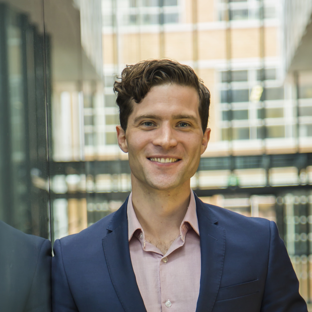‘You can fake your personality for a couple of weeks, at most ... But over the long term, your true personality will come out.’
Carmel Johnston, an environmental scientist, was the crew commander of NASA’s most recent Hawaii Space Exploration Analog and Simulation (HI-SEAS) project. As part of this mission, she spent an entire year living with five other scientists in an 11-metre-wide geodesic dome on the Mars-like slopes of Mauna Loa volcano in Hawaii.
The focus of the study, which concluded in August last year, was psychological. NASA wanted to learn individual stress reactions and group cohesion in an intensely cramped, isolated environment comparable to life in a space vessel on Mars. The researchers had to wear full space suits any time they left the dome, and resources were painstakingly rationed and recycled.
In conversation with astronomer Alan Duffy, Johnston will discuss group dynamics, freeze-dried scrambled eggs and social survival in a space dome.
Presented in partnership with WOMADelaide’s Planet Talks Programme.
This event will be Auslan interpreted.
Featuring
Carmel Johnston
Carmel Johnston recently finished serving as Commander of the Hawaii Space Exploration Analog and Simulation, where she and five other people lived in complete isolation for an entire year.
With a Masters of Science in Land Resources and Environmental Sciences from Montana State University, she was able to apply her passion for science and sustainable living to growing fresh vegetables for the crew.
Now that she is out of the dome, she is taking full advantage of being able to run, hike, swim, and play outside in her hometown in Montana.

Alan Duffy
Associate Professor Duffy is an astrophysicist at Swinburne University creating baby universes on supercomputers to understand how galaxies like our Milky Way form and grow within vast halos of invisible dark matter.
He is attempting to find this dark matter as part of SABRE, the world’s first dark matter detector in the Southern Hemisphere at the bottom of a gold mine in Stawell, Victoria. He is also an Associate Investigator in two ARC Centres of Excellence investigating the origin of matter (CAASTRO-3D) and seeing the Universe with gravitational waves (OzGrav).
When not exploring simulated universes Alan lectures in physics as well as science communication at Swinburne University of Technology. Every fortnight Alan tries to explain breaking science from UFO sightings to the latest NASA discoveries on his space segment with ABC Breakfast News TV, ABC Radio Sydney with Robbie Buck and ABC Radio Melbourne with Clare Bowditch. He is also a regular on Ten’s The Project, Nine’s Today Weekends as well as Triple J’s Hack. Most recently Alan presented an episode of ABC's Catalyst and has another episode being released in 2018.
You can hear Alan on ABC Radio National Cosmic Vertigo, see him the in Todd Samson science show Life on the Line or catch him at any number of public speaking events. He’s even toured Australia with the BBC’s Science of Doctor Who show.
He was the Ambassador for the Sydney Science Festival 2016, and host for Famelab showcasing science talent across Australia.
He wrote and starred in a science show about dark matter, Dark, shown in 148 planetariums in 25 countries worldwide.
His other writing pursuits include his own column in the Conversation and Australia’s most popular science magazine Cosmos.
He was named one of Men’s Style Magazine’s Men of Influence, WA Sunday Time Magazine’s Best and Brightest as well as a finalist for the National Eureka Award for Promoting Understanding of Australian Science Research, Victorian State Finalist in the Fresh Science Award for science communication and Commbank’s Australian of the Day.
